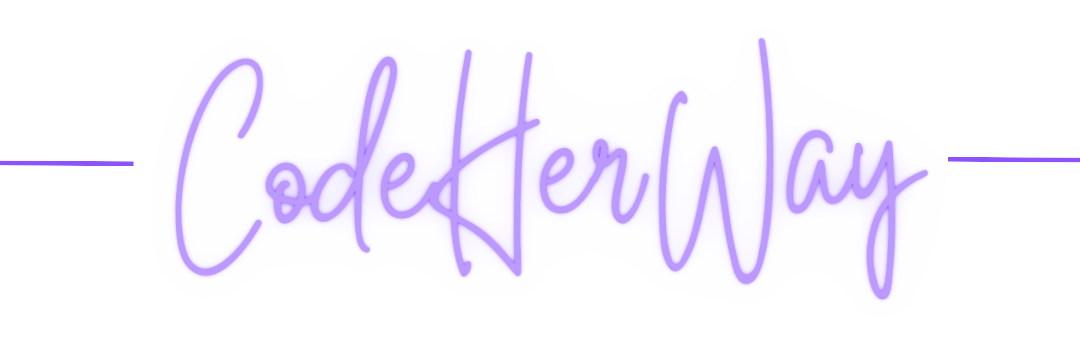Why I Talk to My Code Like It’s a Dog
Because sometimes, “Good boy!” is the only thing that gets the function to run.
The other day, I caught myself crouched over my laptop whispering, “Come on, you can do it… good job!” to my IDE like it was a puppy trying to fetch a stick.
And the thing is—it worked. The code compiled.
This isn’t a one-off thing. I talk to my code like it’s a dog on a daily basis.
Sometimes I plead with it.
Sometimes I yell at it like it just chewed up my deploy script.
And sometimes? I praise it like it just performed in a dog show.
Let’s be real: code is unpredictable, stubborn, and oddly lovable. So naturally, it behaves like a dog.
🐶 Code and Dogs Have a Lot in Common
Stay with me here:
Both ignore you half the time.
Both respond better to kindness than yelling.
Both occasionally run off and do something completely unpredictable.
When a block of JavaScript refuses to cooperate, I don’t scream—I reason. I comfort. I coax. And sometimes, I bribe with a promise of a clean commit history (even though we both know it’s already chaos in there).
Some developers write elegant code. Others write functional code. And then there’s me—writing code while whispering, “Come on, you can do it,” like I’m coaxing a nervous puppy off the couch.
I’ve begged my CSS to behave. I’ve told my functions, “No! Bad function!” And yes, I’ve rewarded successful deploys with, “Good job, buddy!” like I’m handing out virtual treats.
Is it weird? Absolutely. Is it valid? 100% yes.
Why I Talk to My Code Like It’s a Dog
It doesn’t listen—but I feel better when I try. Like when your dog runs off in the park and you shout, “COME BACK HERE!” That’s me, yelling at a function that’s stuck in an infinite loop.
It needs constant reassurance.
Sometimes I’ll say “good job” after a successful build like I’m handing my app a treat. Even though I’m 99% sure it’ll break again tomorrow.It breaks stuff when it’s unsupervised.
I look away for two minutes and now the layout is broken in IE11 for no reason. Classic.Tone matters.
Code can’t hear me, but somehow, my gentle voice seems to help. (Probably helps me, but still.)
Stuff I Say to My Code (and What I Actually Mean)
“You can do it.”
I don’t understand why this loop isn’t iterating correctly, and I’m emotionally invested now.“Good job!”
That worked on the first try and I’m suspicious. Is this… joy?“No no no no no!”
That wasn’t supposed to happen. You’re not supposed to mutate the DOM like that. Bad code! BAD!“Come on, buddy…”
I’m one syntax error away from crumbling and I need you to cooperate.
💬 Talking to My Code Keeps Me Sane
Software development is a deeply human experience wrapped in syntax and caffeine. It’s high-stress, high-stakes, and full of logic-defying behavior.
Talking to my code:
Breaks the tension
Makes me laugh when I’m on the verge of tears
Turns debugging into a weirdly personal bonding exercise
Is it solving the problem? Not directly. Is it solving me? Maybe
This Is Kind of Science?
We talk to our plants. We talk to our pets. We talk to our cars. So why not our code?
The moment I start giving pep talks to my functions is the moment I stop spiraling and start believing I can figure it out. It’s not irrational—it’s connection. (Okay, and maybe sleep deprivation.)
Talking to yourself while coding is actually a real thing. “Rubber duck debugging” is a technique where you explain your code out loud to an inanimate object, and it helps you spot issues. I prefer my duck to be... alive-adjacent.
Also: when we talk to code like it has a personality, we soften the frustration. It’s no longer a faceless machine. It’s a little gremlin that you love and hate but ultimately root for.
🧪 The “Good Code Boy” Method
Step 1: Encourage
"Come on, little buddy… you’ve got this."
Step 2: Validate
"YES! That’s what I’m talking about. Look at you returning the correct output!"
Step 3: Celebrate
"WHO’S A GOOD COMPONENT? YOU ARE."
Step 4: Whisper threats (optional)
"If you crash in production, I swear..."
Bonus: Programming Languages as Dog Breeds
CSS = Shiba Inu: beautiful but does whatever it wants.
JavaScript = Labrador: sweet and wild, breaks stuff with tail wags.
Python = Border Collie: learns fast, precise, smarter than you.
React = Poodle: elegant, modular, needs a lot of grooming.
jQuery = Old Golden Retriever: doesn’t bark anymore, still shows up.
Talking to your code like it’s a dog isn’t just quirky—it’s cathartic. In a world where bugs outnumber brain cells and error messages speak in riddles, treating your code with the same chaotic affection you’d give a mischievous pup might just be the key to staying sane.
So go ahead. Tell that for loop it’s doing amazing. Rub some metaphorical belly. And remember: bad code can be trained. Probably.
And if you catch yourself saying, “Who's a good little component?” while debugging—you're not alone.
Give yourself a pat.
Give your code a metaphorical treat.
And keep barking up that logic tree.




